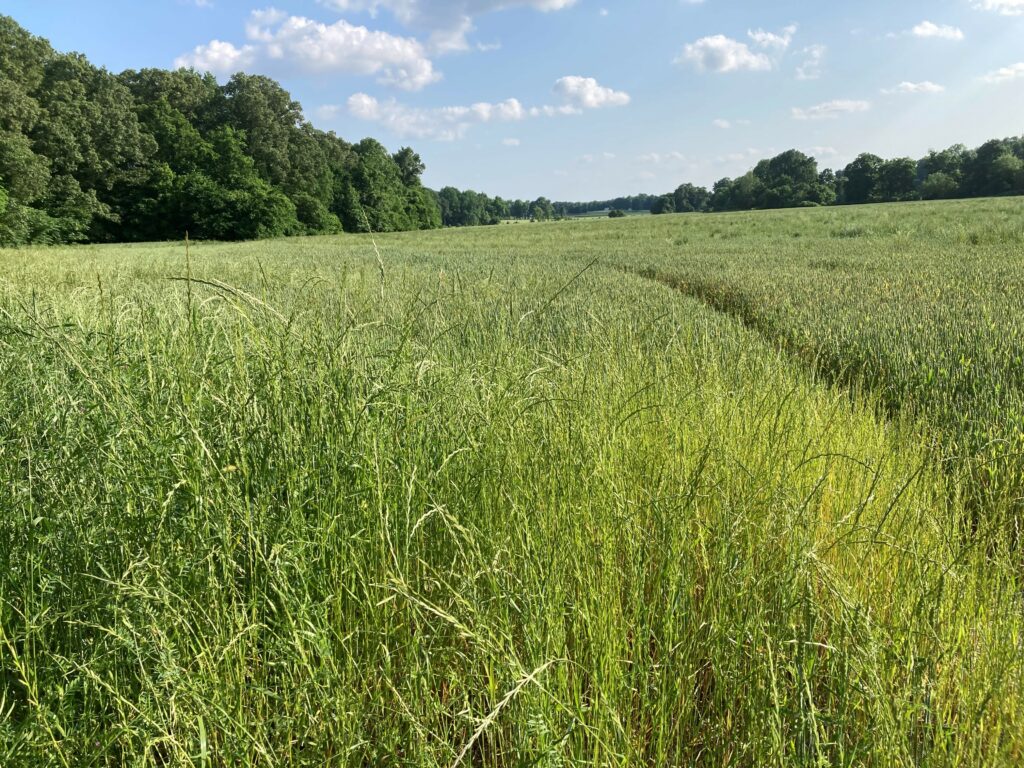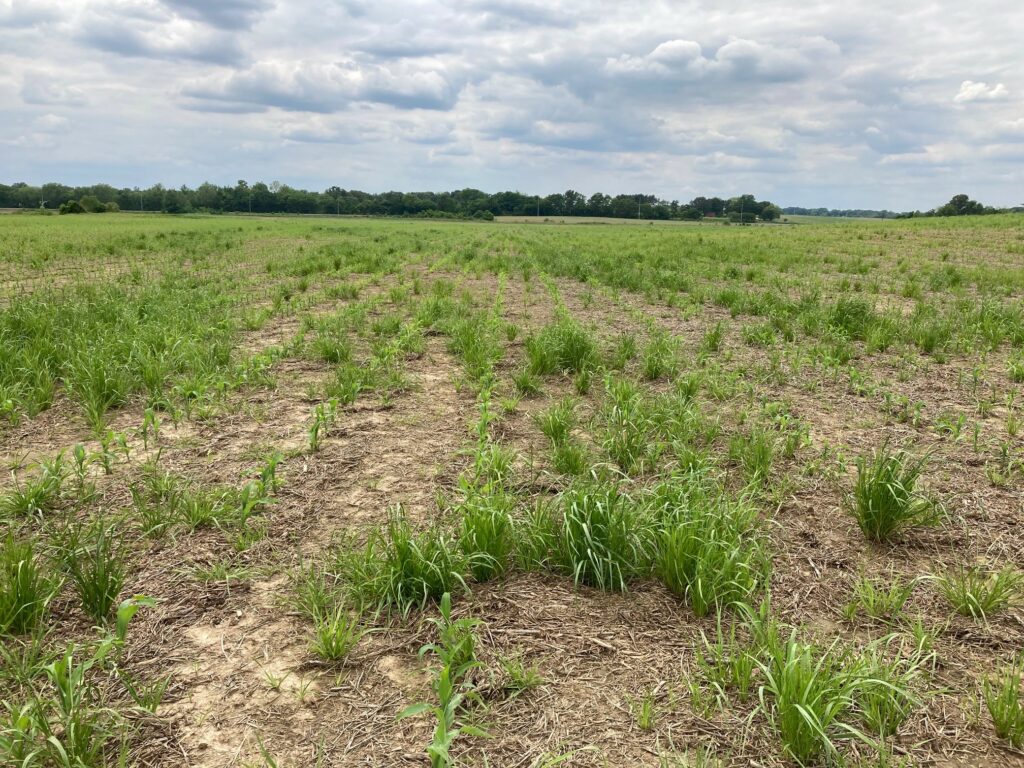Even with some rain in the forecast, the dry to drought conditions in Tennessee have reduced disease development and hence reduced the potential to break even on a fungicide in corn.
Category Archives: Corn
Is it time to irrigate corn?
Corn is not sensitive to water limitations in early vegetative stages, but it’s important to watch the growth stages and soil type when timing irrigation. After V8, corn undergoes rapid vegetative growth and ear size determination begins (Table 1). A corn plant’s irrigation requirement will drastically change with the onset of hot and dry conditions such as are being experienced this month (Figure 1). Continue reading
Weather and Corn Nitrogen
Recent rains are welcome in parts of middle and east TN where moisture was running short, however heavy and frequent rains continue to visit west TN, making field operations very difficult. Continue reading
Ryegrass and Johnsongrass: Where do we go from here?


Ryegrass has moved from being an aggravation 10 years ago to a significant weed issue in our row crops. In wheat at this point, the yield loss caused by the weed has occurred (Picture 1). In cotton and soybeans, clethodim can be used now to push this weed on to maturity. In corn, there is no real solution to controlling it other than spraying the typical POST corn premix and hoping that pushes the ryegrass on to maturity (Picture 2).
The wheat fields that were consistently clean of ryegrass were those treated with either Anthem Maxx, Zidua or Axiom last fall. A good bit of the ryegrass population in the state is resistant to ALS-inhibiting herbicides which renders herbicides like Osprey, Finesse, and Powerflex harmless to ryegrass. Axial Bold has shown improved ryegrass control in spring applications over those ALS-inhibiting herbicides but it does not offer the consistent ryegrass control as those delayed PRE-applications of Anthem Maxx, Zidua or Axiom.
Johnsongrass is also a consistent problem in a good many cornfields. Glyphosate is just not providing any traction in the burndown on Johnsongrass and the POST in-crop applications are no better. Our most recent research funded by the Tennessee Corn Checkoff program has shown that Steadfast Q or Accent Q can still provide good control of Johnsongrass when glyphosate fails.
Ryegrass Management in Newly Emerged Corn
The call of the last week has been ryegrass and/or Poa escaping burndown in a number of fields that have been or will be planted to corn. In most cases the ryegrass escaped a glyphosate plus dicamba burndown. Continue reading
Corn Planting Windows of Opportunity
A recent Ag poll indicated 80% of respondents felt they were behind on planting this spring. No surprise in Tennessee, as farmers once again take advantage of a small window for planting at the end of April ahead of more rain. Continue reading
Poor Burndown Performance
There have been a number of reports on disappointing burndown applications that were applied during that cold stretch, 3 to 4 weeks ago, when nighttime temperatures were in the 20s. The herbicides that performed poorly were some combination of systemic herbicides glyphosate, dicamba, clethodim and Leadoff. Continue reading
UT Grain Conference Info Available on Web
Attendance at the West TN Grain and Soybean Producer’s Conference was severely impacted by the weather in February. Continue reading

